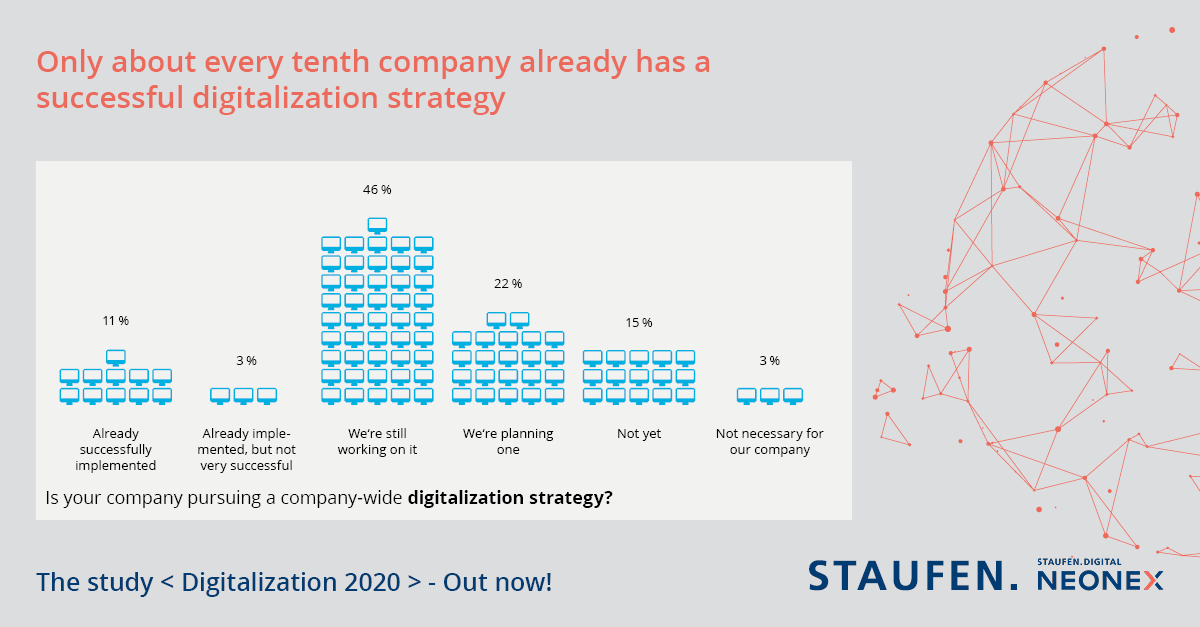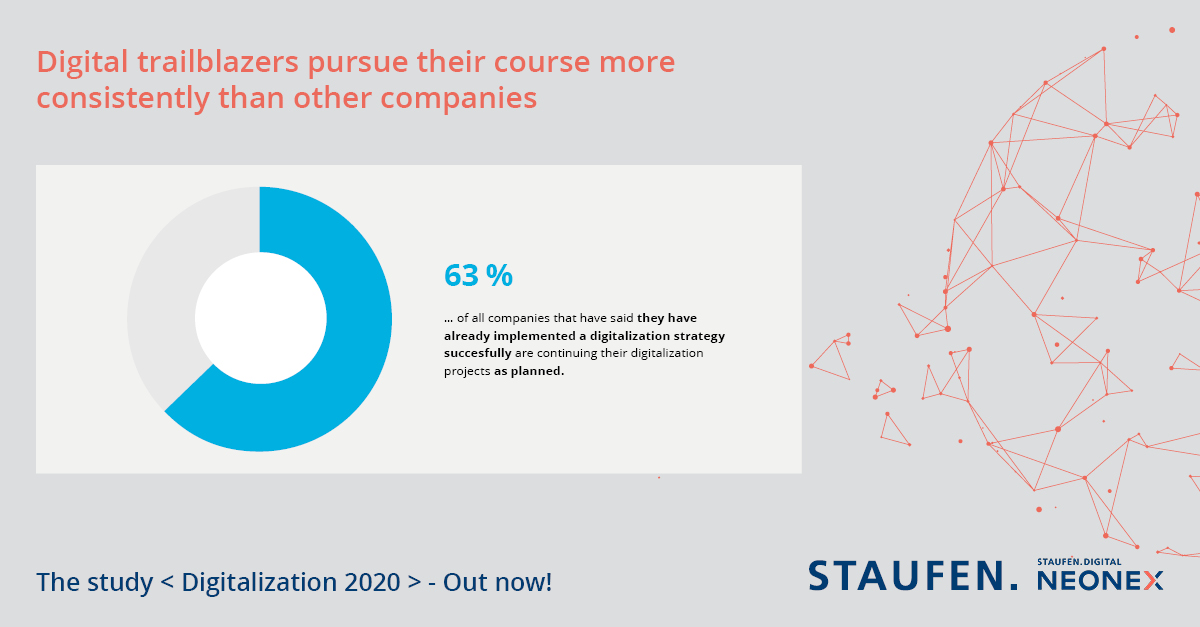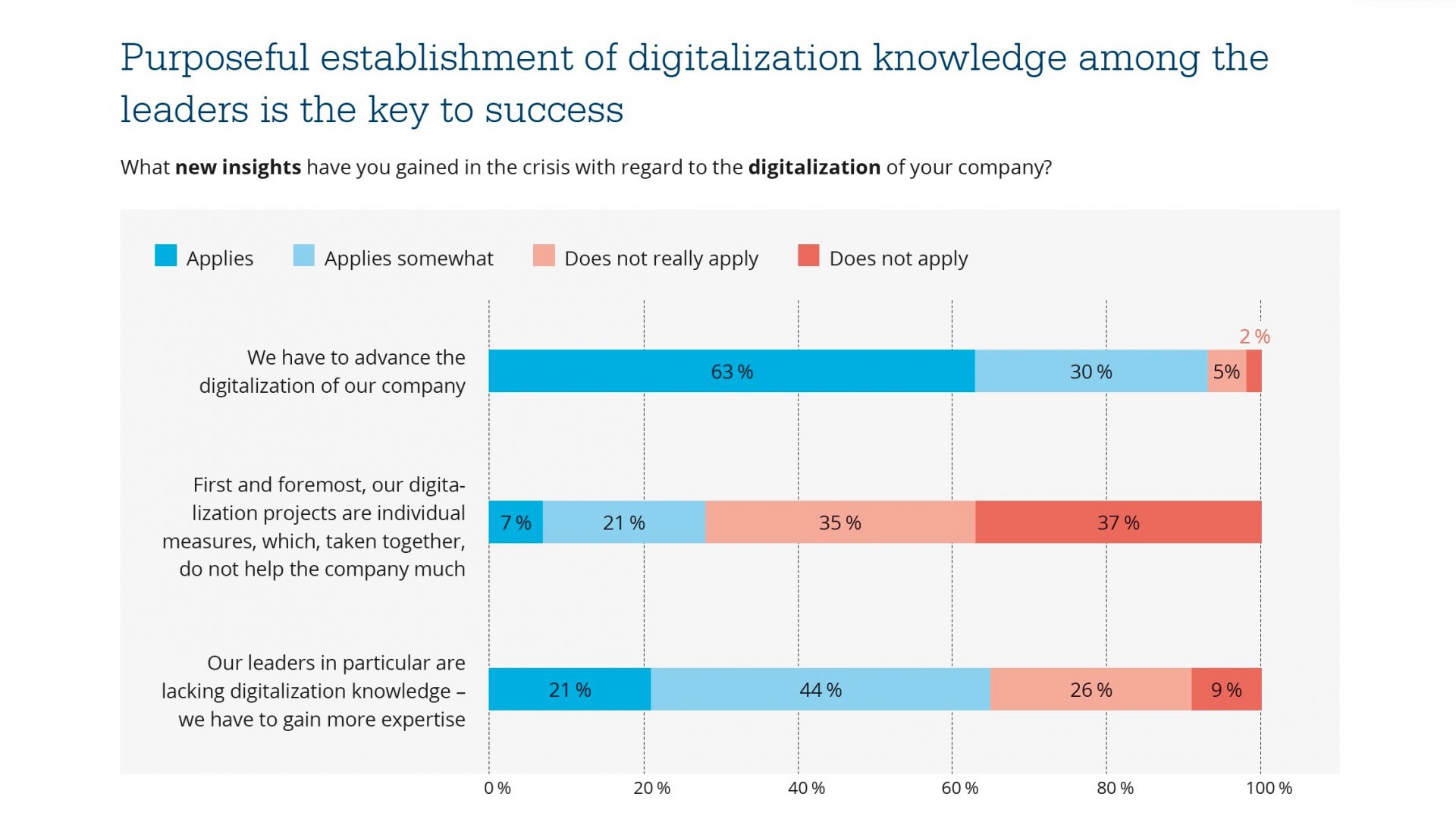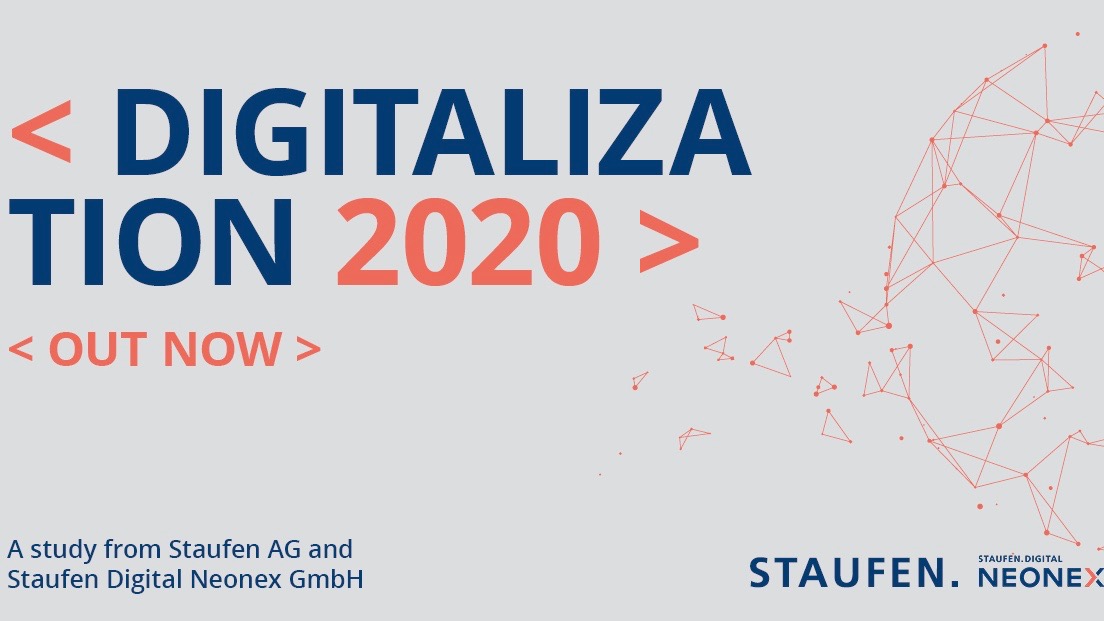Not just "blah-blah"
23. November 2020- Blog
- Digital Strategy
- Alignment
- Study
- Digitalization 2020

The underestimated importance of the digitalization strategy
It sounds so obvious, like a worn out mantra, the typical “consultant blah”: Without a digitization strategy, there is no digitization success. And yet in many places it is not understood what “digitization strategy” actually means and its relevance is therefore often not recognized. A mistake.
The new study Digitalization 2020, which we published together with colleagues from Staufen, shows that successful digitizers have survived the corona pandemic better so far. They state that they remain more flexible and more capable of making decisions through digitization and are largely continuing their digitization projects as planned. But what does “successful digitizer” mean? The study design understands this as companies with a digitalization strategy. Why did we choose to assume this causal link?
Strategy is - admittedly - a somewhat nebulous term that can be interpreted very differently, especially in terms of scope and concreteness. But if you break it down to a core idea, the quintessence of the strategy is that it shows the company management how a medium or long-term corporate goal is to be achieved. And that is - in our experience - the decisive factor, especially in relation to digitalization: The cross-departmental involvement of upper management. The levers of digitization must be clear to them, there must be an agreement on the “what” and “why” and the resources required must be clearly planned and coordinated in the budget for the next few years. So, on the one hand, it is about content guidelines. But above all about coordination and a common approach.
In my day-to-day consulting work, I have already got to know a wide variety of approaches to digitalization. It is clear: Whenever there is no uniform clarity among upper management about the meaningfulness and goals of digitalization, the initiative becomes unnecessarily complicated or even fails. Ambitious isolated solutions then sink into a network of responsibilities, annual plans and vanities.
Let's take the example of OpEx Manager X. Convinced by the promises of digitization, he independently "tinkered" a solution for the paperless provision of work documents in his work area. It delivers promising results for the work area - but the success is not yet visible at the corporate level. His COO would like to change this and roll out the solution to other areas. However, he quickly gets headwind from the IT department: A company-wide roll-out would require 24-hour support for the computers on the shop floor. Impossible for an IT department that only works from 9 a.m. to 5 p.m. Could that not be changed? No. Because the COO, who loves digitization, is not in charge of the IT department, but rather the number-driven CFO. And he doesn't believe in Industry 4.0 at all. Ultimately, the project dies in its entirety because the leap to the corporate level does not succeed.
It shouldn't have happened like this: test projects should run in a coordinated manner with the involvement of the management team. In the case of the OpEX Manager X, this could mean to agree in advance to evaluate the introduction of an MES or an IoT platform when the first tests in various application areas bear fruit. The fact that such an alignment did not take place in advance can be seen as a failure factor for this initiative.
How do you do it better and come up with a coordinated digitalization strategy?
It is clear that only those can understand goals who also understand what possible goals there are. Therefore digitalization know-how has to be built up first. Because this - as our study also shows - is still not sufficiently available among many managers.
With more and more customers, we are therefore implementing a qualification and coordination program with top management at the beginning of the Digital Transformation. This also works in times of keeping your distance, purely online and therefore across locations. We start from the very beginning by creating the same understanding of terms from the digitalization environment for all participants. Afterwards, various use cases are evaluated with regard to their relevance for the company. Do we need driverless transport systems? What about an Andon Escalation Management System? Throughout the workshop, we will develop a clear objective and the first cornerstones for a successful start in Digital Transformation.
Customers like Danfoss benefit greatly from this initial definition of goals at the top level. As a result, there are far fewer discussions and complications in the actual transformation process.
So. Dear plant manager: Do not operate digitalization as a "submarine project" in the specialist department. Include top management from the start and develop a clear vision together. Dear CEO: Don't delegate digitalization to the specialist departments. Come on board right from the start. It's a team effort!
That may sound banal, but it is a very important success factor.







